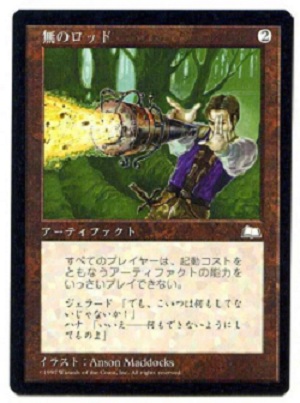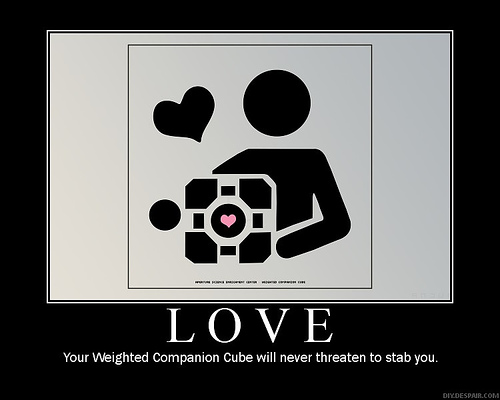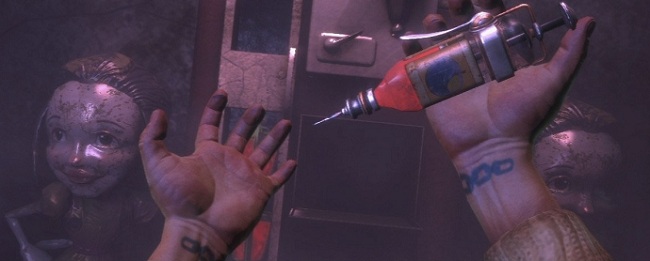Success at tournament Magic starts before you’ve drawn a single card. I feel that most competitive players understand the importance of proper deck choice and tuning for a tournament metagame and the significance of technical preparation. But in my experience, mental preparation doesn’t seem to get its due respect at the PTQ and GP level.
Most tournaments are endurance trials, and you need to be ready in so many ways. Many writers have discussed how it’s incredibly important to sleep well before a tournament, eat well during, stay hydrated, etc. And that’s all very true—there’s no substitute! What I’d like to take a look at are some aspects of mental preparation that can be equally important: objectivity and expectation [unmet].
At some point you’ve probably sat down against a player who seemed defeated before you even began to play your match. Or perhaps you’re someone who has felt this way yourself. I know that in the past I’ve found myself questioning why I’m at a particular tournament when I’m simply "not feeling it."
As a Magic player, I’ve witnessed this phenomenon in countless others, at GPs and kitchen tables. And that’s saying nothing of its occurrence in life outside Magic, where it’s just as commonplace. Magic is far too dynamic a game on every level to get caught in such mental traps.
"But it doesn’t do anything."
"No—it does nothing."
To give a hyperbolic—though real—example, I recently played against an opponent who mulliganed to six in game 1 and was very discouraged while being very vocal about his mindset. As the game unfolded—quite typically for the matchup I might add—with every play I made he expressed his great displeasure, treating each like it was something beyond unexpected, as though such a thing couldn’t even happen in Magic.
Now, I certainly wouldn’t claim that this individual was well prepared technically (he was not), but nevertheless, he had an expectation for exactly how he felt the game should unfold from beginning to end. When each detail of that expectation was not met, he became more discouraged. It can be surmised that even when he did not have some specific expectation in mind for how a particular event should occur, he would find his lack of expectation meeting a disagreement with reality and as such still find a discouragement. He’d set himself up to fail.
So this player found himself stuck in a destructive negative feedback loop. Why? Lack of objectivity. In short, his thinking was unreasonable [for the game of Magic]. Magic is firstly a game of strategy but also a game of great variance. And frankly, variance is one of the main aspects that makes Magic so fun and keeps us playing and coming back…but that’s a discussion for another time. It’s important to accept the dynamic nature of Magic and make the effort to remain flexible in your approach.

I’d go so far as to say "actively have no expectations." That is not to say don’t set goals. Definitely set goals and go after them passionately, but understand and accept Magic as it is and not as an idealization. If you allow yourself to be objective about the game, then you’ll be able to more easily focus on what matters, such as those things over which you have control like correct technical play. When the outcomes are not in your favor, you’ll be able to accept this much more easily.
Making a mistake is not a good reason to make a mistake.
If before a tournament you avoid, whether consciously or unconsciously, the unreasonable expectation of "perfection," then when you make a misplay you’ll more readily be able to accept and adapt quickly. You’ll be able to move on from the current game state without dwelling on the past mistake that led you there, even if it was just a moment ago.
When your faculties are forward thinking in the game and your focus is not needlessly diluted by unfortunate details you cannot change, you’ll become better at acknowledging and mentally archiving misplays you would have otherwise missed. You’ll be able to learn from and then detect and prevent more and more misplays from setting you back. This ability to prevent past mistakes from causing future mistakes is a critical skill to develop for tournament success because it’s a sure thing you’ll always misplay in the course of a tourney.

Even in the future. *sigh*
On the topic of compounding mistakes, beyond expectation there may be an element of ego involved for some people. It’s kinda like when you see someone switch lanes in traffic to try and go faster, but they awkwardly move into the slower lane. They often still have ample opportunity to get back in the lane they came from, but they won’t do it because it’s embarrassing to "admit" their mistake to themselves. I mean, everyone knows you made the mistake and got in the slower lane because you thought it was faster. Or everyone doesn’t, but either way, you do, so accept that you’re not perfect and get back in the faster lane because that’s where you want to be. 🙂
Bioshock
Sound mind in a sound body and all that, etc., etc. Really, though, it’s most certainly true that the better you take care of your physical body, the better your mind will perform. For Magic, there are also other ways to exercise. Firstly, why is "exercise" important for Magic?
Let me give an example: I sometimes have this problem where an idea or a particular way to go about tackling an obstacle gets stuck in my head. While occasionally this compulsion has led to success, it has most often propelled me to spectacular failure. It might be in predicting and preparing for a tournament metagame, or maybe it’s a line of play within a game from which I can’t bring myself to deviate. Perhaps it’s that I’m thinking too slowly to solve complex game states for a certain matchup in the timely fashion required for the timed rounds of competitive play. Likewise, I’ve found myself at the end of playtesting sessions knowing I’ve been very unproductive. (Feels approximately like you’ve been bashing your head against the wall for several hours, amirite?) I can actively feel myself straining, but I simply can’t move the boulder from my way.

Sometimes it feels like you’re forcing things, and that can cause you to lose sight of how much you love Magic—that the reason you’re playing the game is to have fun! What I’ve found works well for me is to take a small step back from Magic itself and make an effort to give my attention to other aspects in my life that are important to me, giving my full concentration one at a time. When I then turn my focus back to Magic, whether it’s a day or a week or an hour later, I feel refreshed and prepared to tackle whatever issue felt blocked.
Now, this is a pretty loose definition of "exercise," but I wholeheartedly feel our non-Magic life experience augments and enhances our ability for success at Magic. Those non-Magic experiences lead to clarity of thinking about Magic. And I’m not even certain they have to be particularly mental. Though if you’re looking for a fun test, Portal might be an especially good cognitive exercise. 🙂
A comparison that comes to mind is football and weight training. Even (especially) the best football players rigorously augment the muscles they use during a game. While they are actively using those muscles in a competitive game, they’re not necessarily growing them to strengthen their skills. They can’t be their best football player by playing only the game of football.

There is no substitute for developing your technical play at Magic, but by testing the waters in your own life, you’ll discover activities that will have you practicing for Magic even while you’re not playing—and probably keep reminding you why you love Magic! Remember to strive for perfection but not to expect it.
